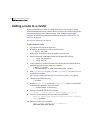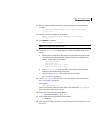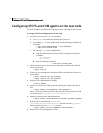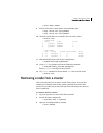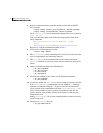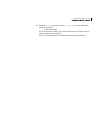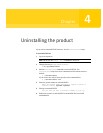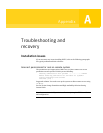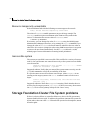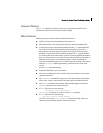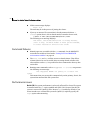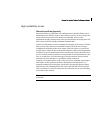
65
Storage Foundation Cluster File System problems
Unmount failures
The umount command can fail if a reference is being held by an NFS server.
Unshare the mount point and try the unmount again.
Mount failures
Mounting a file system can fail for the following reasons:
■ The file system is not using disk layout Version 6 or 7.
■ The mount options do not match the options of already mounted nodes.
■ A cluster file system is mounted by default with the qio option enabled if
the node has a Quick I/O for Databases license installed, even if the qio
mount option was not explicitly specified. If the Quick I/O license is not
installed, a cluster file system is mounted without the qio option enabled.
So if some nodes in the cluster have a Quick I/O license installed and others
do not, a cluster mount can succeed on some nodes and fail on others due to
different mount options. To avoid this situation, ensure that Quick I/O
licensing is uniformly applied, or be careful to mount the cluster file system
with the qio/noqio option appropriately specified on each node of the
cluster.
See the mount(1M) manual page.
■ A shared CVM volume was not specified.
■ The device is still mounted as a local file system somewhere on the cluster.
Unmount the device.
■ The fsck or mkfs command is being run on the same volume from another
node, or the volume is mounted in non-cluster mode from another node.
■ The vxfsckd daemon is not running. This typically happens only if the
CFSfsckd agent was not started correctly.
■ If mount fails with an error message:
vxfs mount: cannot open mnttab
/etc/mnttab is missing or you do not have root privileges.
■ If mount fails with an error message:
vxfs mount: device already mounted, ...
The device is in use by mount, mkfs or fsck on the same node. This error
cannot be generated from another node in the cluster.




